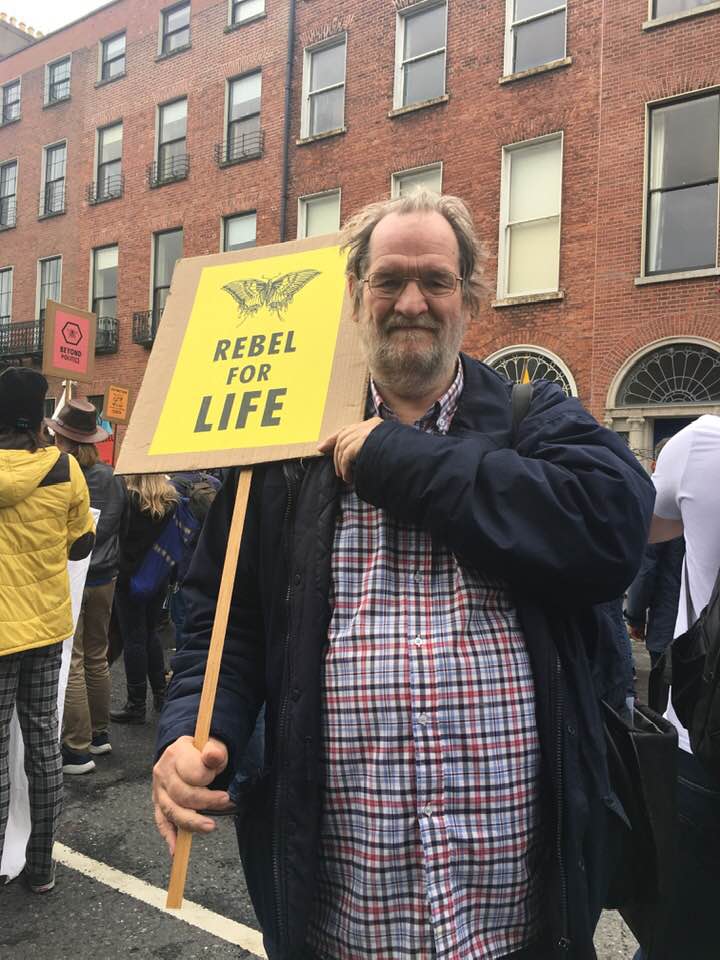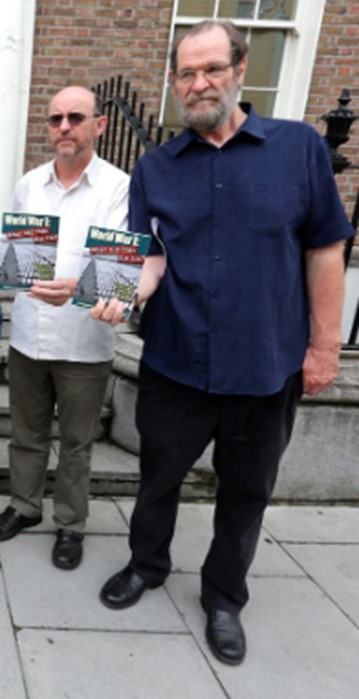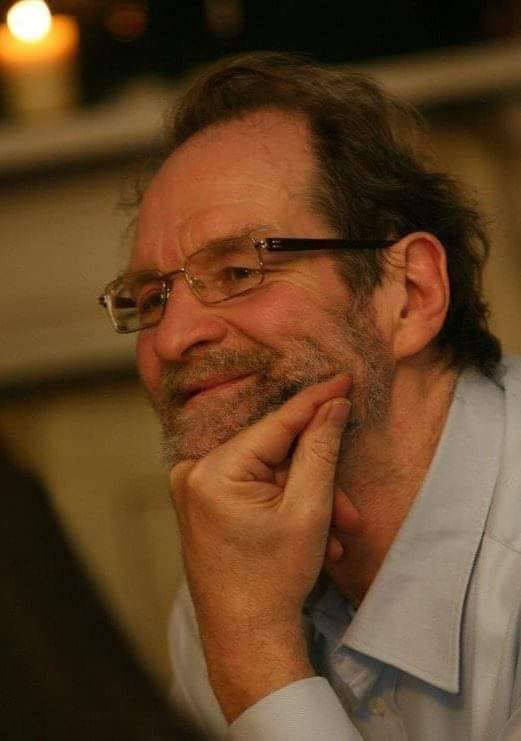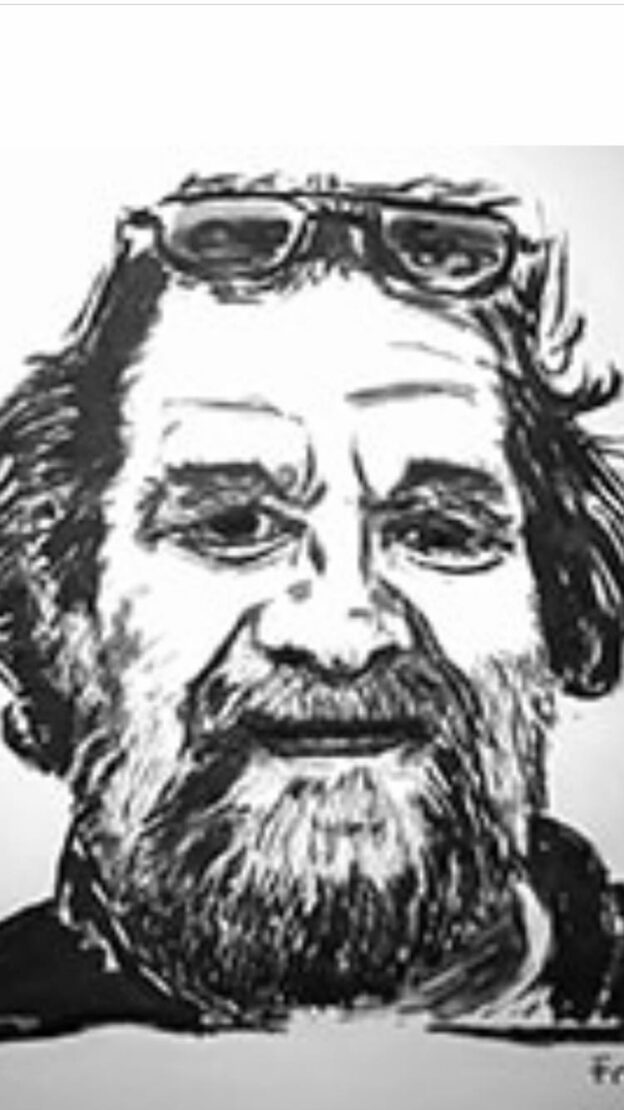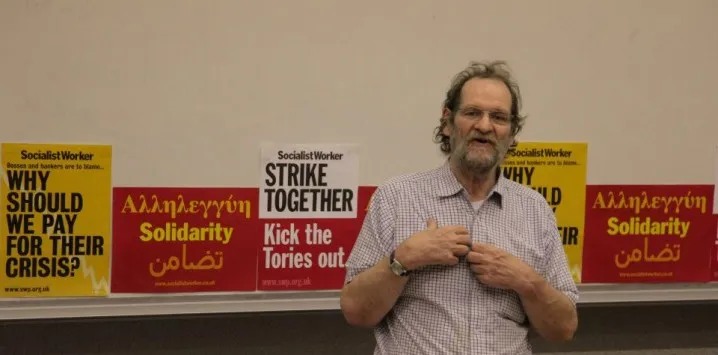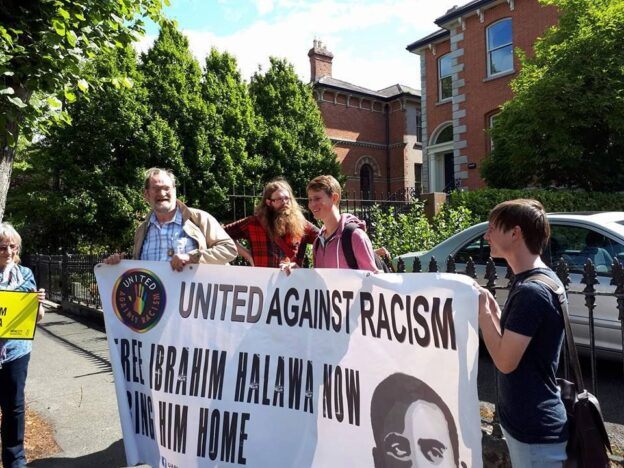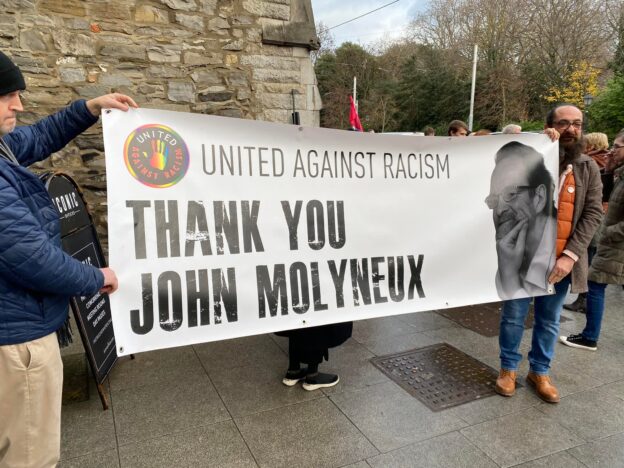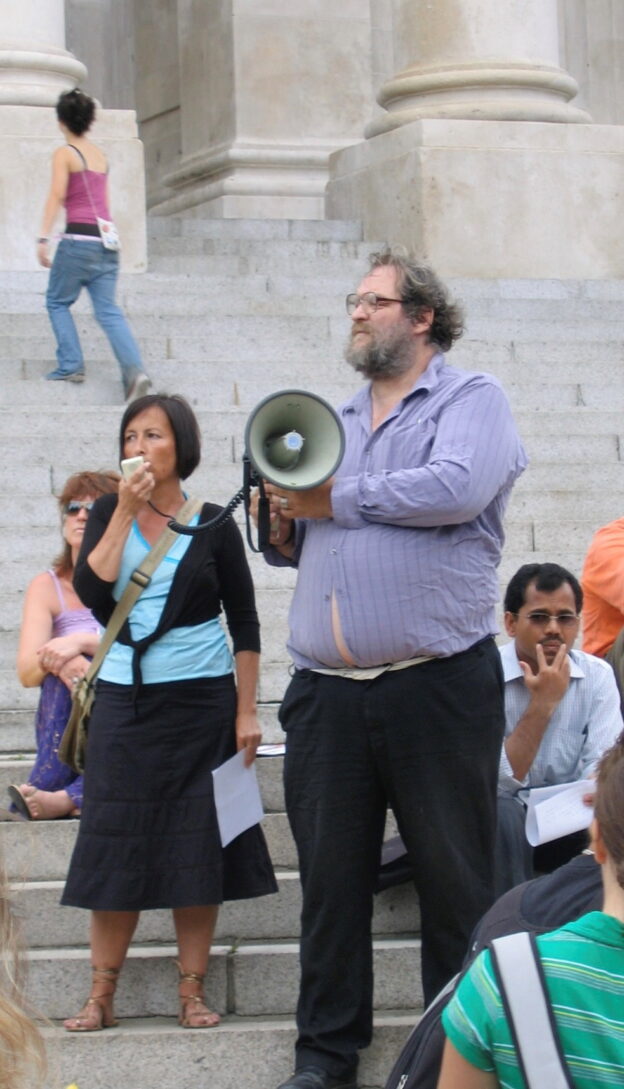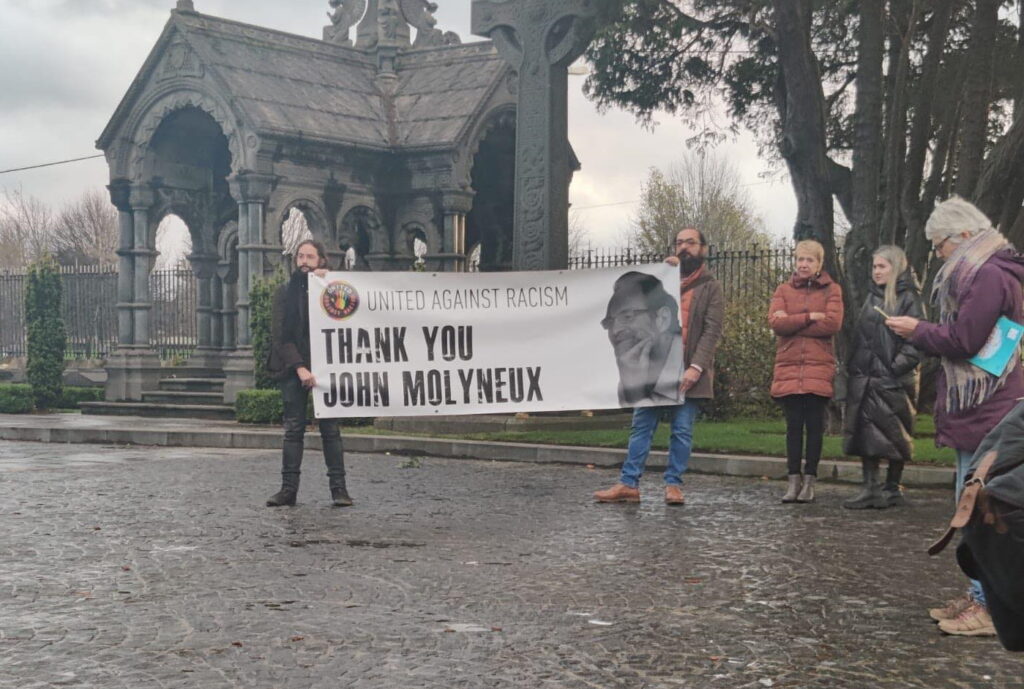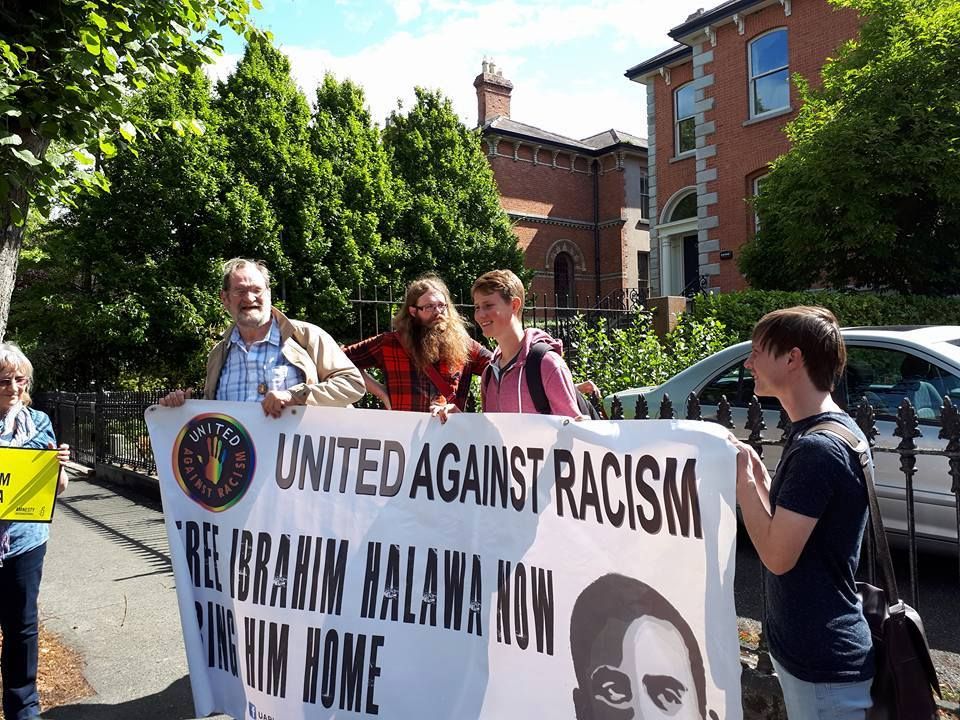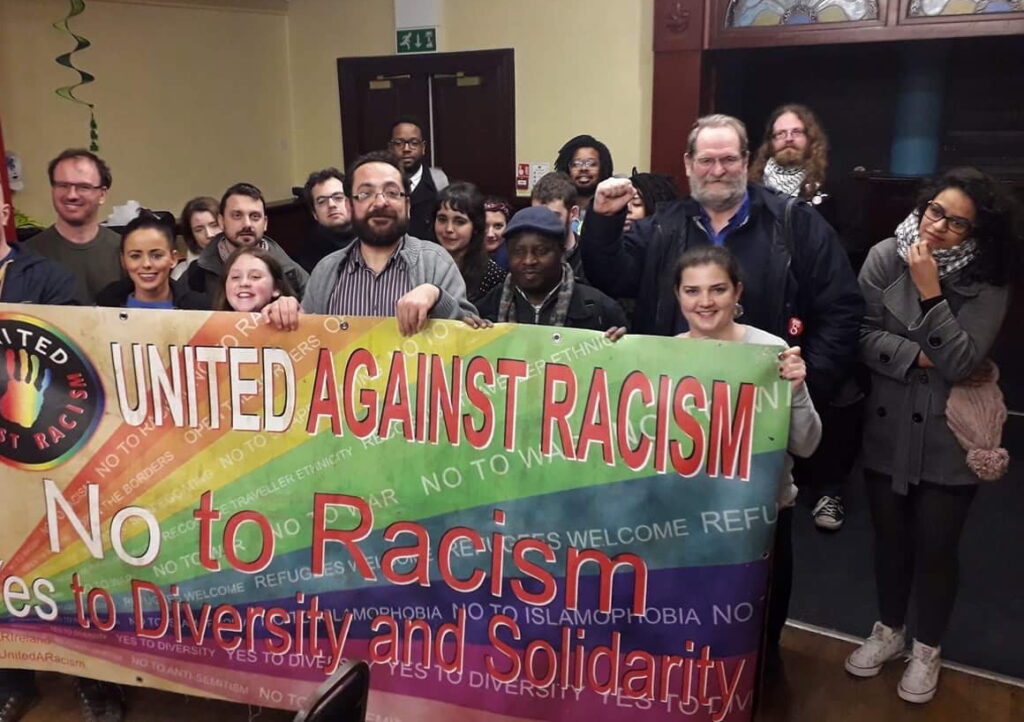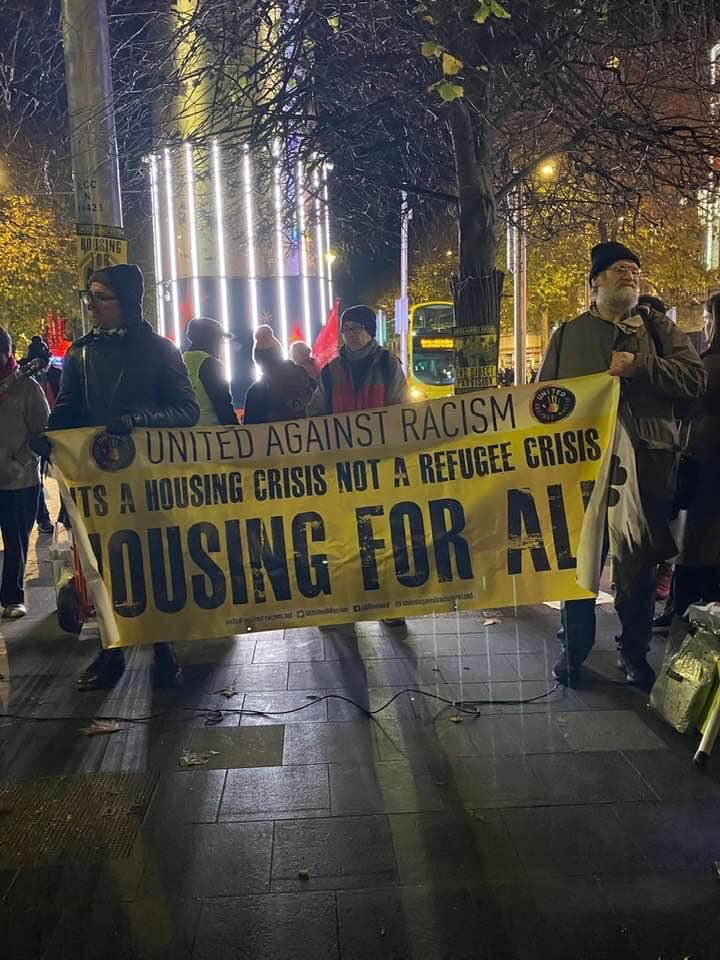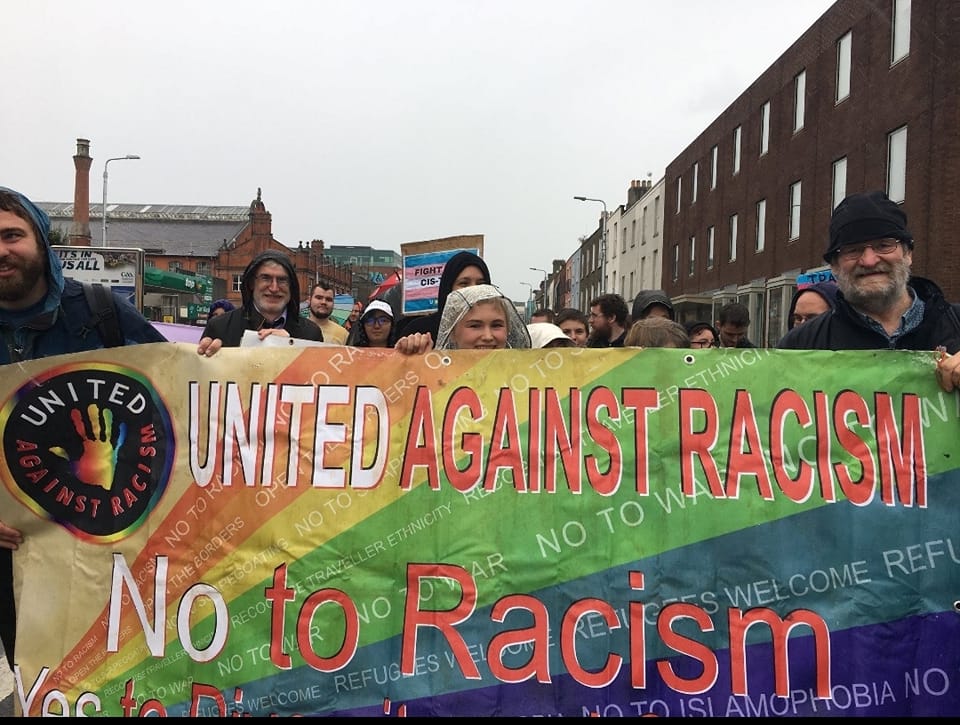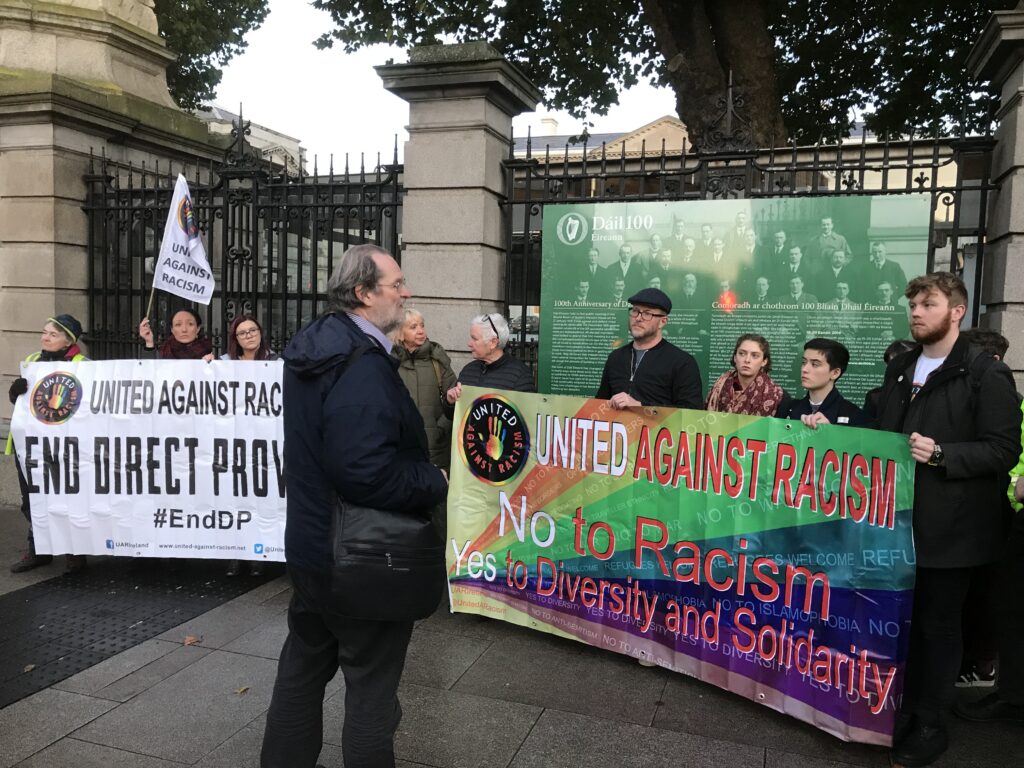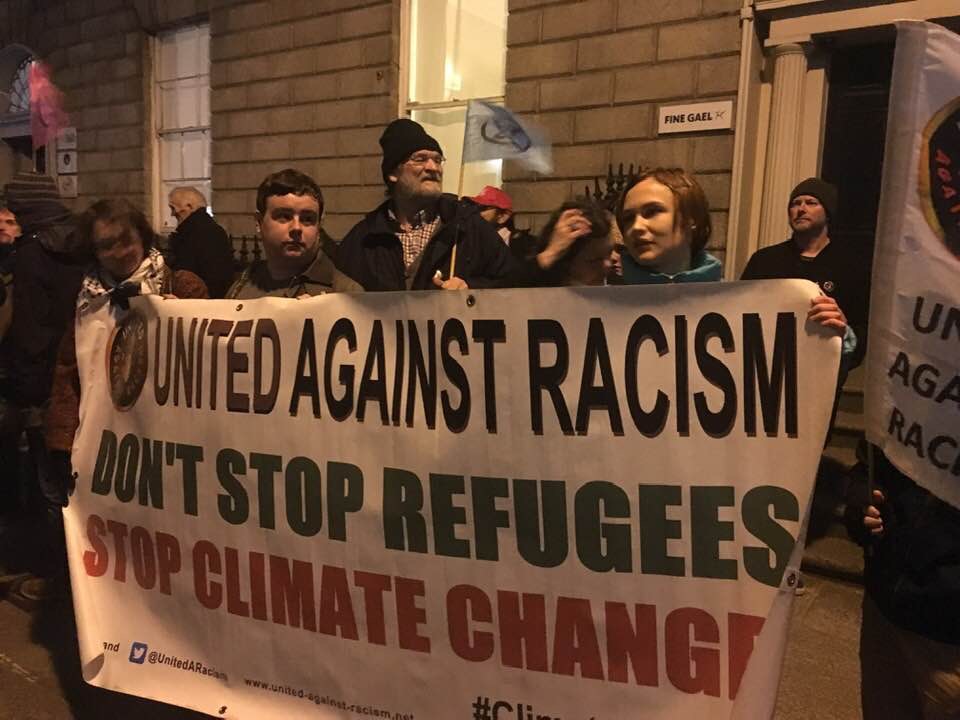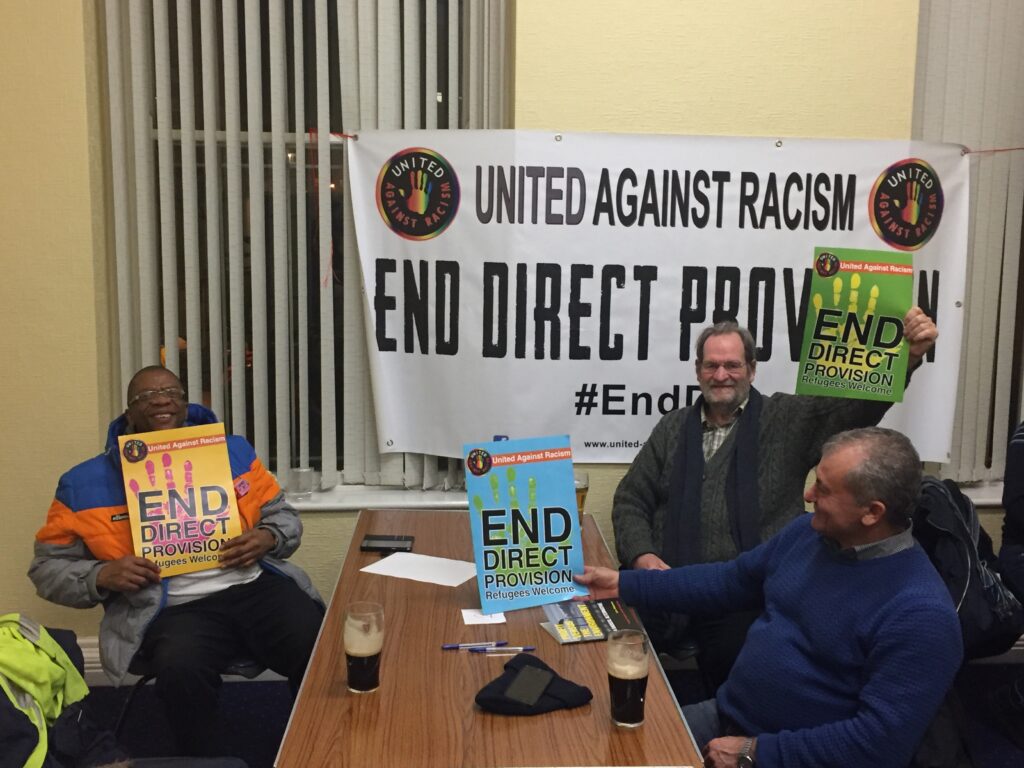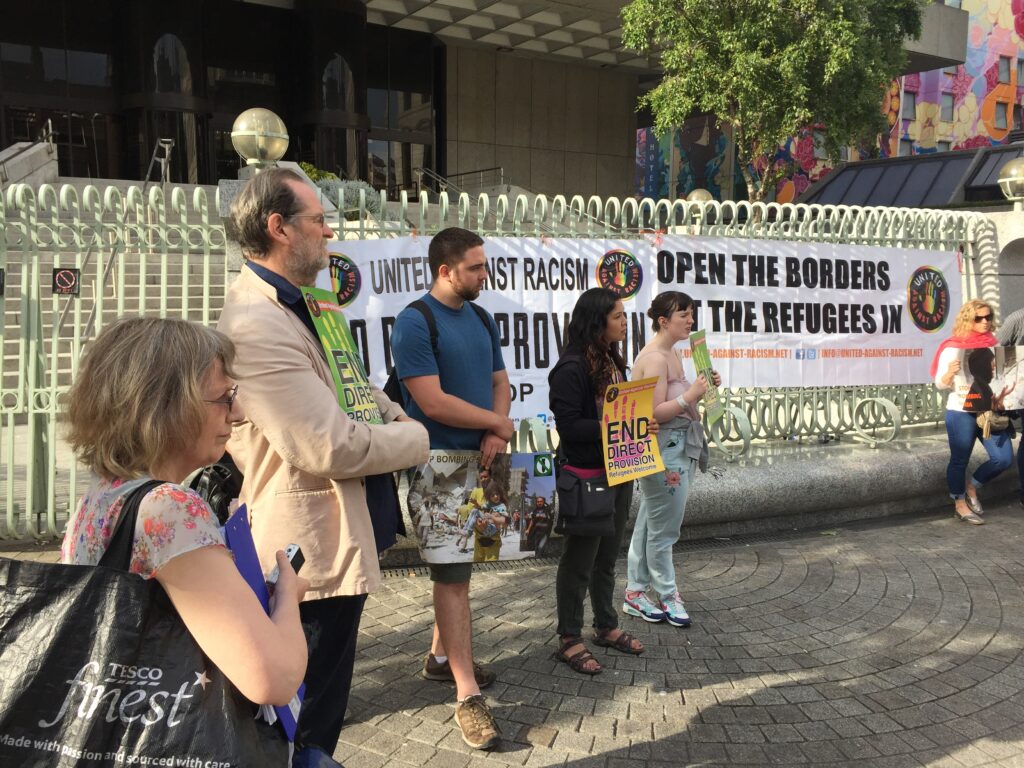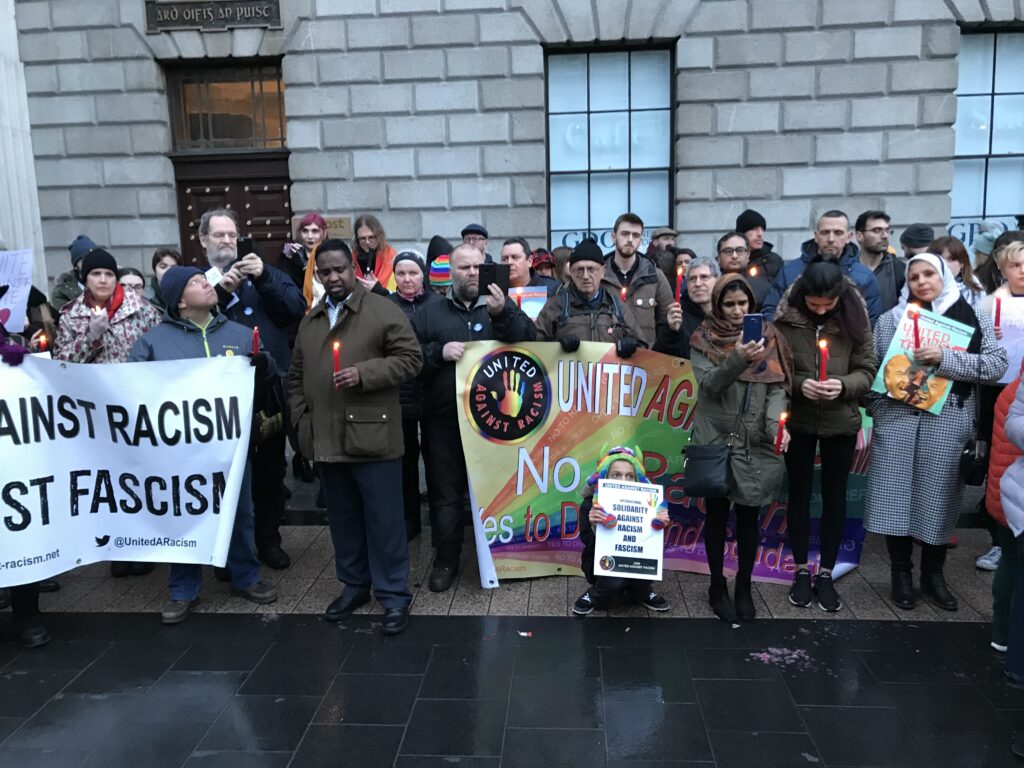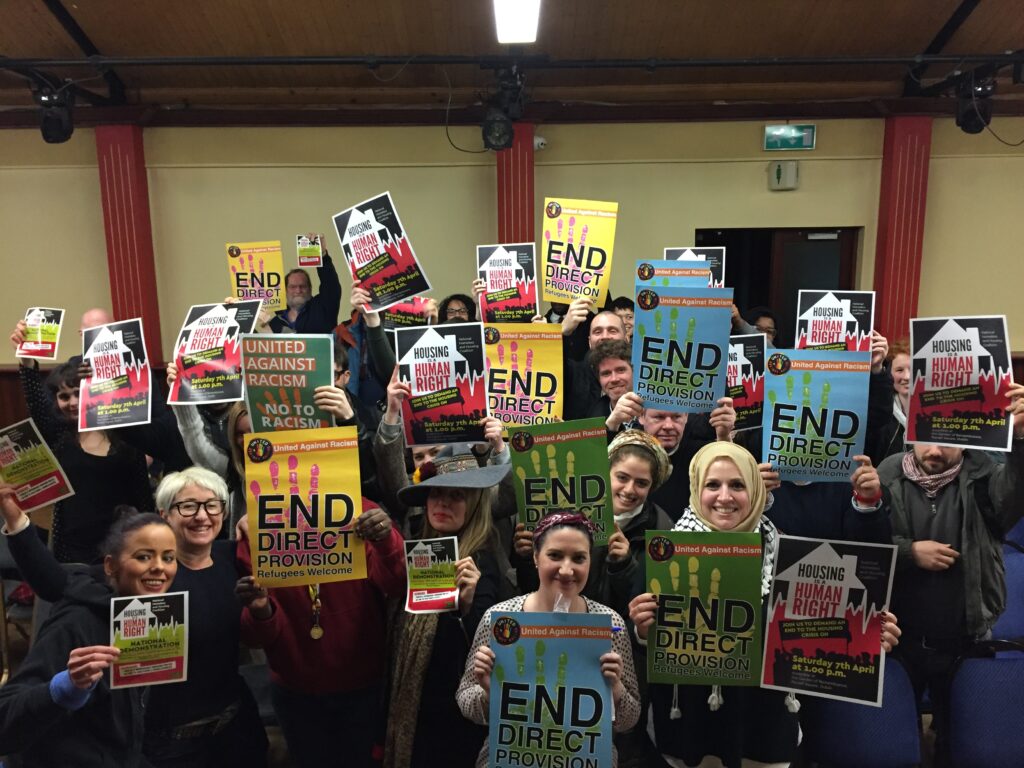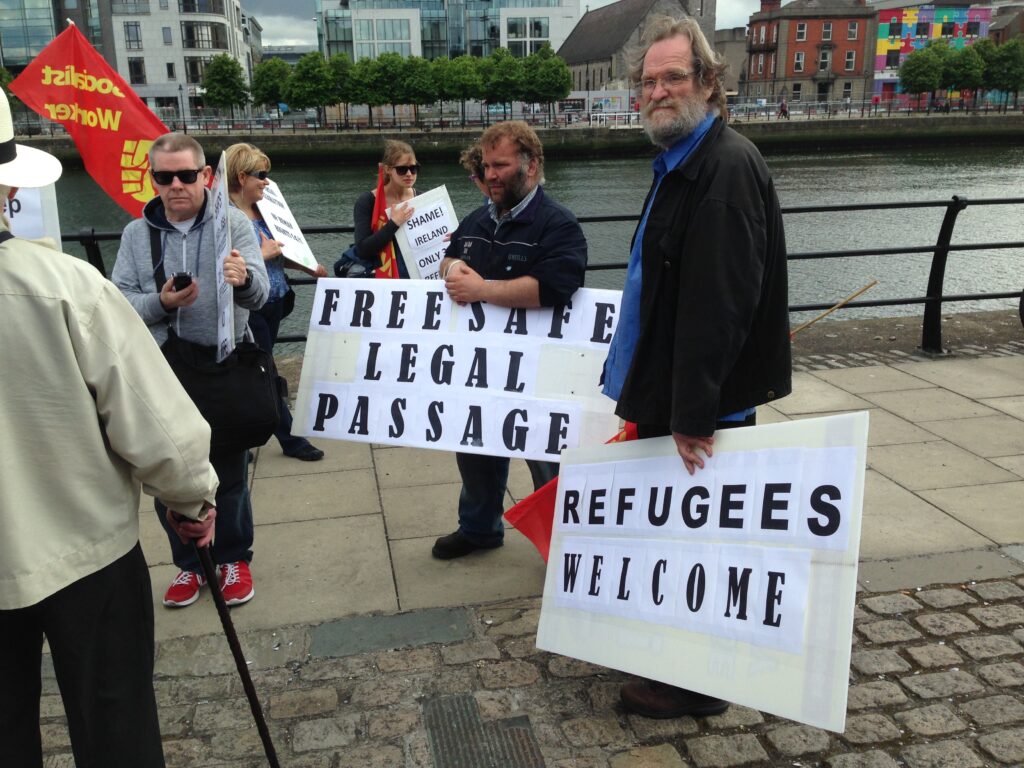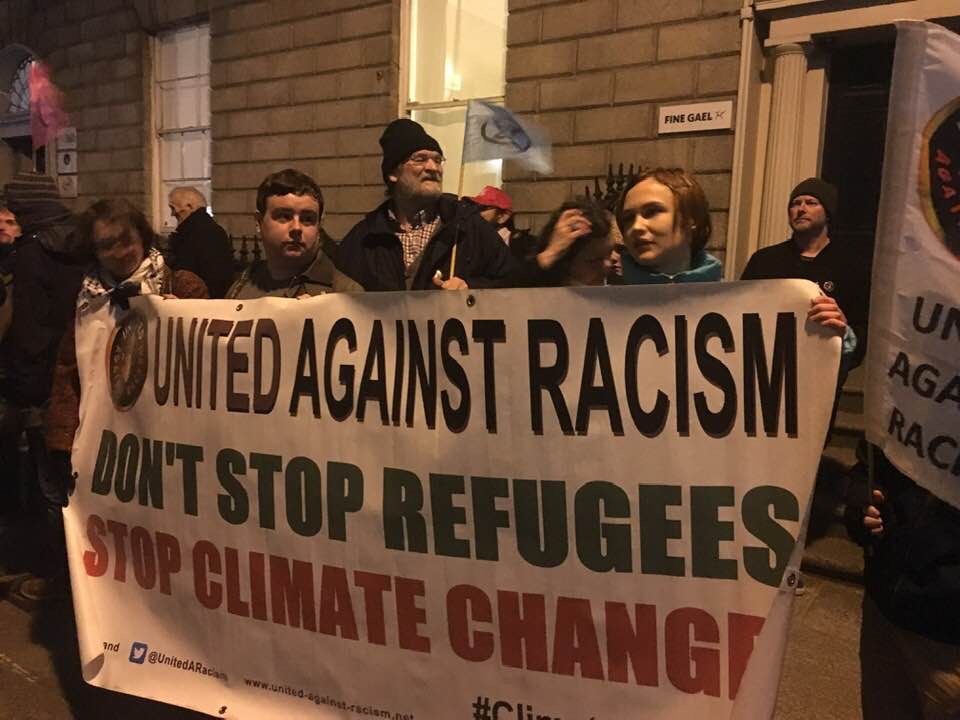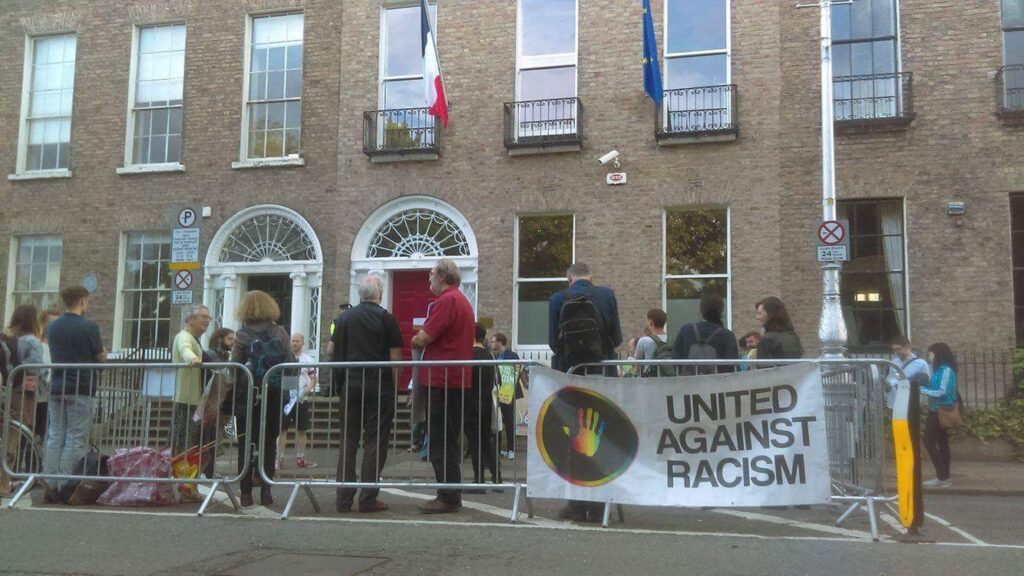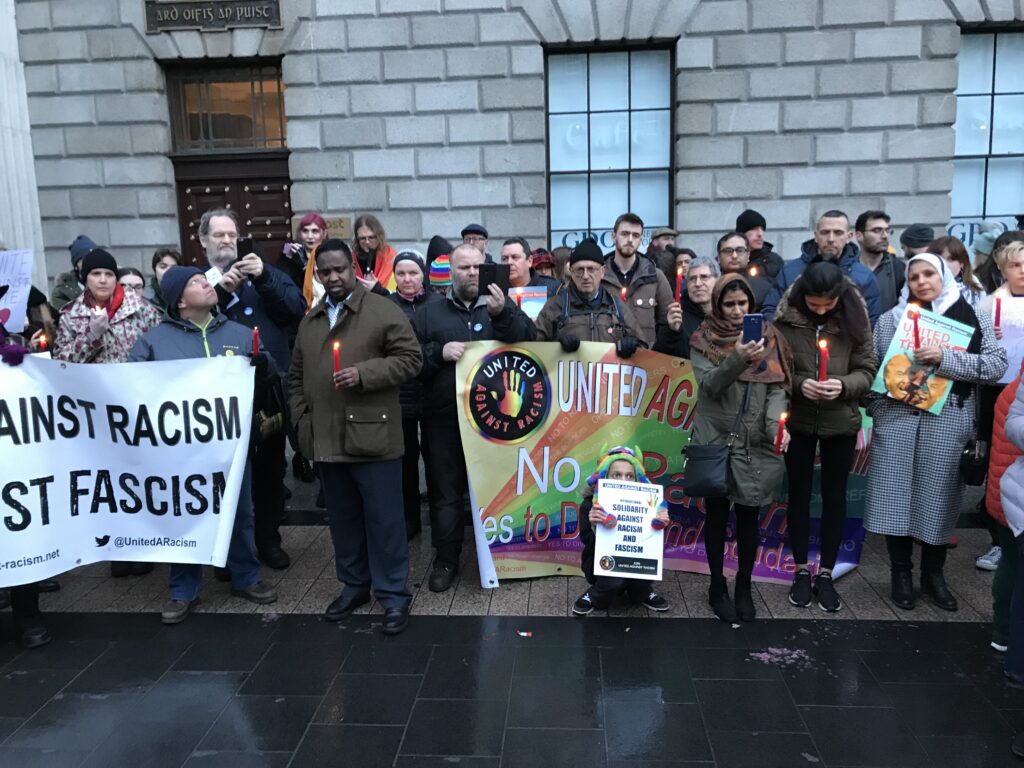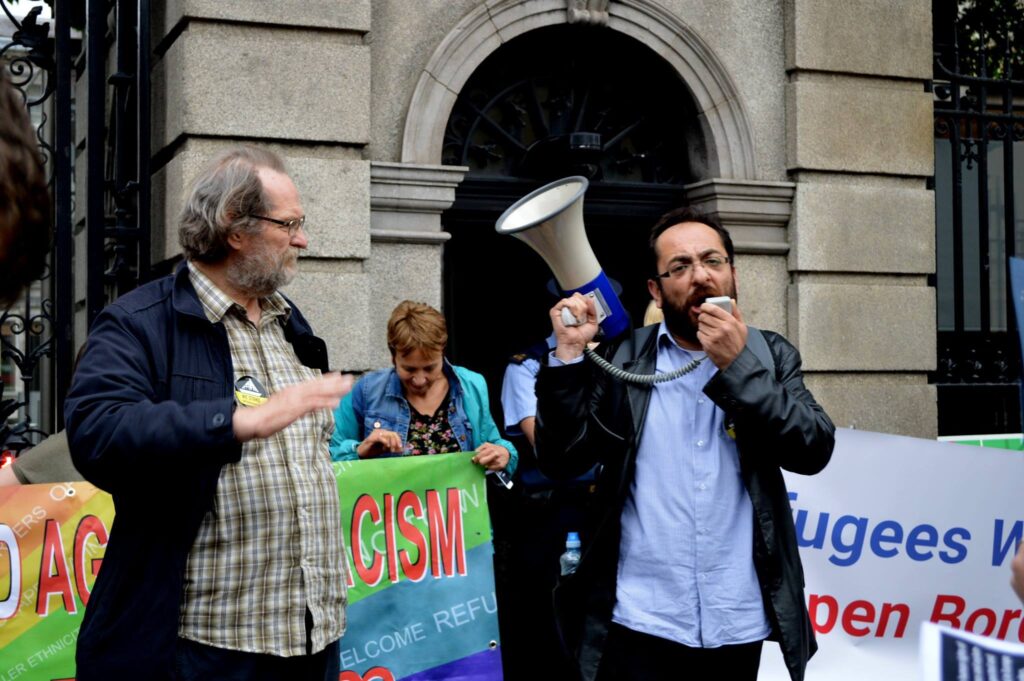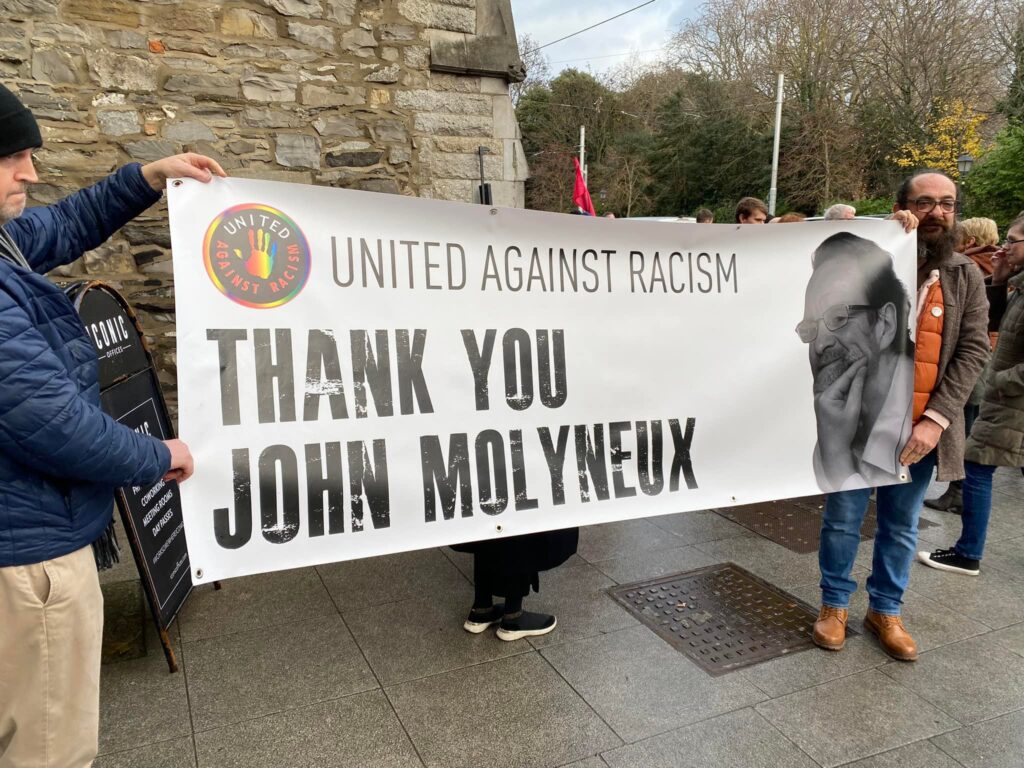El 10 de diciembre desapareció repentinamente nuestro compañero John Molyneux. Murió en Dublín, Irlanda, donde vivía tras jubilarse de su trabajo de profesor en Portsmouth, Inglaterra.
Jugó un papel muy importante en la corriente socialismo internacional, de la que Marx21 forma parte y fue, además, una muy buena persona. Lo echaremos de menos.
Ideas claras
Nació en Gran Bretaña en 1948. Siendo estudiante, se afilió en 1968 al grupo Socialismo Internacional —que más tarde se convertiría en el Socialist Workers Party (SWP)— a tiempo para participar en las luchas explosivas de la época.
Algunos estudiantes radicales de esa época habrían combinado el ultraizquierdismo con una verborrea incomestible. Pero John se había afiliado a una corriente que rechazaba ambas cosas: se les daba la bienvenida a militantes estudiantiles, pero tenían que aprender a hablar con la gente trabajadora de a pie, en una fábrica, oficina, hospital…, conectando la visión global revolucionaria con los problemas y luchas de cada día de la gente trabajadora.
En 1978, John publicó un libro importante sobre El marxismo y el partido. Fue una contribución a la tarea en esos años de convertir lo que había sido un grupo político con toques libertarios e informales en un partido más organizado y disciplinado.
Otro texto clave fue “¿Cuál es la tradición marxista?”, que intentó distinguir el marxismo revolucionario — centrado en la autoemancipación de la clase trabajadora y lucha por la liberación humana— del terrible historial de la socialdemocracia y el estalinismo. Y lo hizo sin recorrer a la visión sectaria de que “la única política revolucionaria es la que defiende mi propio grupo”.
Estos y otros de sus libros demostraron la capacidad de John de explicar las ideas con claridad y de manera convincente; en absoluto se trataba de intentar ganar los debates mediante apelaciones a la autoridad y la disciplina.
A esta habilidad le dio un buen uso con una columna en el periódico semanal Socialist Worker. Su columna fue un excelente ejemplo de la aplicación práctica de las ideas marxistas. No se trataba de “simplificar” en el sentido de presentar argumentos simplistas, carentes de profundidad. Más bien, logró explicar y hacer accesibles los conceptos básicos del marxismo, en un formato que sirviese a una persona trabajadora en sus conversaciones cotidianas, en un descanso en el trabajo, en el bar… ¿Por qué debemos rechazar los controles de inmigración? ¿Por qué los horrores de la URSS no demuestran que el socialismo no puede funcionar? ¿Por qué debemos apoyar las luchas sindicales a la vez de desconfiar de la burocracia sindical? Cada semana, aportó ideas claras y convincentes sobre temas así.
Muchas de estas columnas se recogieron más tarde en el folleto “Argumentos para el socialismo revolucionario”.
Pero no solo escribió, también fue activista revolucionario en su ciudad de Portsmouth, ganando a mucha gente joven al partido a lo largo de muchos años. Y ser activista del SWP —como de cualquier grupo de la corriente IST— supone también impulsar luchas más amplias.
Años más tarde John recordó cómo las y los militantes del SWP fueron de las pocas personas en Portsmouth que se opusieron a la guerra de las Malvinas de 1982. Es que Portsmouth es la ciudad portuaria principal de la armada británica: fue la base de donde salió la flotilla bélica para la guerra contra Argentina. No solo eso, la industria armamentística emplea una parte importante de la gente trabajadora de la ciudad. Ante una situación así, muchas personas, incluso de la izquierda radical, se olvidarían de sus principios. Es característico de John y de la política que representaba mantenerse firme, defendiendo sus ideas, pero sin sectarismo, sin perder el contacto con la gente corriente. Así que años más tarde, John contribuyó a que 12 autocares de Portsmouth —todavía una ciudad fuertemente militar— se llenasen para participar en la gran manifestación en Londres contra la guerra de Irak, el 15 de febrero de 2003.
Independiente
Para algunas personas supondría una contradicción, pero el fuerte compromiso de John con la política revolucionaria lo llevó a mantener una actitud muy crítica con su propio partido cuando pensaba que su dirección cometía un error. Estuvo más que dispuesto a defender una posición propia cuando le parecía necesario; fue parte de su grandeza y una de las cosas que lo hizo tan especial.
A principios de los años 80, se produjo en el SWP un debate muy importante acerca del análisis marxista de la opresión de las mujeres. La dirección mantenía que esta opresión, en el fondo, le beneficiaba al sistema capitalista, a la clase dirigente. John argumentó que también le beneficiaba al hombre trabajador: en cierto sentido, su argumento prefiguraba ideas que se difundirían unos años más tarde como “la teoría de privilegios”.
Como en todo debate importante teórico, su relevancia estaba en lo que significaba para la lucha. Si esta opresión de las mujeres realmente le beneficiaba a la mitad de la clase trabajadora, no tenía sentido proponer una estrategia mediante la cual esta clase debía combatir la opresión, de manera unitaria. En realidad, desde ese punto de vista, sería difícil ver cómo acabar con esta opresión. Sin embargo, pocos años antes, en 1979, unas mujeres sindicalistas de izquierdas, incluyendo a compañeras del SWP, habían conseguido que la central sindical de Gran Bretaña, el TUC, organizase una manifestación en defensa del derecho al aborto; lograron reunir a 50.000 personas, tanto hombres como mujeres. Fue una muestra práctica de que las ideas machistas, que son evidentemente muy fuertes y extendidas, pueden ser superadas mediante la lucha y el debate, con argumentos de clase contra la opresión. Los hombres en esa manifestación habían entendido que su interés real no estaba en perpetuar el sistema opresivo actual, sino en luchar en su contra, codo con codo con sus compañeras de clase.
En todo caso, John presentó sus argumentos, pero se quedó en minoría. Se había celebrado un debate real, la militancia había votado y se había adoptado una posición colectiva; en eso consiste el centralismo democrático. Lógicamente, John seguía siendo un activista y pensador clave del partido.
En los siguientes años, hubo algunos episodios más de este tipo. En su momento, seguro que hubo algunas quejas dentro de la dirección del partido ante su insistencia en plantar cara cuando discrepaba. Retrospectivamente, sin embargo, los debates que John inspiró ayudaron considerablemente al SWP —y al conjunto de la corriente socialismo internacional, que iba creciendo poco a poco en la misma época— a profundizar su análisis sobre las opresiones y otras cuestiones difíciles.
Solidez
La solidez política de John la demostraría de nuevo durante una larga crisis que sufrió el SWP a partir de 2007, cuando varios grupos de militantes abandonaron el partido.
Hubo diferentes razones concretas en cada caso, pero en el fondo se estaba pagando el precio del éxito de los años 2000-2003 y el haber conseguido impulsar grandes movimientos, como el movimiento antiguerra… a costa a veces de la propia organización y política del partido. Cuando el nivel de movilización empezó a decaer, cuando era más difícil convencer a otra gente de una estrategia, surgió la tentación de rebajar la política para mantener la popularidad.
Una de las escisiones surgió a raíz de un caso de agresión sexual dentro de la organización que se gestionó de manera inadecuada. Es un logro del SWP que, años antes de la campaña #MeToo, un caso de este tipo no fuese ignorado —como han hecho incontables organizaciones— sino que se debatió fuertemente. La dirección del SWP reconoció más tarde que había cometido errores, y el partido llegaría a desarrollar un protocolo sobre acoso sexual… mucho antes del #MeToo.
En todo caso, más allá de los debates acerca del caso específico, en el fondo de la disputa estaba la necesidad o no de una organización revolucionaria, leninista, como la que llevaban décadas construyendo. Ante esta situación, con su historia de “disidente”, y especialmente en el análisis de cuestiones de opresión, algunas personas hostiles a la dirección del SWP esperaban que John se sumaría a su campaña contra la dirección.
De hecho, porque fue capaz de ver qué representaba el debate en realidad, John se convirtió en una voz muy efectiva en la defensa de la continuidad del SWP y su política general… con las mejoras que se habían demostrado necesarias. Y efectivamente, el SWP se recuperó de la crisis.
Tragedia y renacimiento
En 2002, John sufrió una terrible pérdida con la muerte de su compañera de vida, Jill, tras una larga y dura enfermedad. Él mismo enfermó y casi murió entonces. Fue un período muy difícil del que podría no haber logrado salir. Tuvo la gran fortuna de conocer a Mary Smith, militante del Socialist Workers’ Network en Irlanda, que le dio nuevas ganas de vivir.
Y efectivamente, tuvo toda una segunda vida, al ir a vivir con Mary en Dublín, Irlanda. Aquí se metió totalmente en la política y cultura popular del país. Rápidamente llegó a formar parte de la dirección política del Socialist Workers’ Network (SWN) y un activista del partido-movimiento electoral anticapitalista que el SWN lidera, People Before Profit.
Aquí John fundó la revista trimestral Irish Marxist Review, que declaró que “Nuestro objetivo principal es proporcionar un análisis socialista y marxista serio de los desarrollos políticos, económicos y sociales en Irlanda e internacionalmente. También nos interesaremos en la clase obrera y la historia socialista, en la teoría marxista y en cuestiones de cultura.” Cuando John murió, acababa de salir el número 34 de la revista, tras 11 años de publicación.
Aparte de volver al activismo, John seguía escribiendo sobre temas cada vez más diversos. Escribió el libro The Point Is To Change It: An Introduction to Marxist Philosphy (Bookmarks, 2012, “El punto es cambiarlo: una introducción a la filosofía marxista”) que fue, como decía el título, una accesible introducción a los debates sobre el marxismo y la filosofía.
En 2020, publicó otro libro muy importante, The Dialectics of Art (Bookmarks, “La dialéctica del arte”). En base al análisis de diferentes artistas y sus obras, desde Michelangelo hasta el arte vanguardista actual, analizó el significado del arte como esfera distinta de la creatividad humana, que tiene un aspecto muy político, pero que no se puede reducir a la política ni condicionar en términos políticos.
Jesús Castillo, de Marx21 Sevilla, añade: “También en los últimos años, John mostró un gran interés en la lucha por el clima, desarrollando un discurso anticapitalista que tendía puentes entre diversos movimientos sociales en la búsqueda de la unidad de acción sin sectarismos. En este sentido, John impulsó la Global Ecosocialist Network donde consiguió la participación de personas ecosocialistas de todo el mundo, poniendo siempre especial interés en la participación de mujeres y personas del Sur Global. Su lucha revolucionaria continúa en muchos frentes, también en el empeño por conservar la calidad ecológica de nuestro entorno para las generaciones futuras.”
Destacamos finalmente que John jugó un papel activo en la coordinación de la corriente socialismo internacional, de la que Marx21 forma parte.
John Molyneux y Marx21
El grupo actual de Marx21 tiene sus orígenes en Socialismo Internacional, el grupo fundado en 1994 que fue el inicio de la corriente socialismo internacional en el Estado español.
En ese momento, existían dos textos importantes de la corriente en castellano, Partido y Clase, de Chris Harman, y ¿Cuál es la tradición marxista? de John Molyneux. En un entorno donde “socialismo” se entendía como el PSOE, y “revolución” o “marxismo” se entendían como referencias a la URSS o Cuba, el texto de Molyneux tuvo un valor enorme, al subrayar — sin sectarismo, como se ha comentado— que el marxismo revolucionario significa algo muy diferente.
Con los años, el grupo publicaría más obras suyas en castellano, como ¿Es la naturaleza humana una barrera al socialismo?, La futura sociedad socialista, o la colección de sus columnas mencionada arriba, Argumentos para el socialismo revolucionario.
Aparte de esto, siempre fue un gran amigo del grupo Socialismo Internacional, que a principios de los 2000 pasó a llamarse En lucha. Cuando participábamos en las impresionantes jornadas en Londres del SWP, Marxism, John siempre buscaba tiempo para hablar con las y los militantes de nuestro grupo.
Como miembro de la coordinación de la corriente internacional, John fue una ayuda importante para el grupo Marx21.
La crisis que sufrió el SWP a inicios de la década de 2010 tuvo su paralelo en el Estado español. En 2000-2003 el grupo había tenido mucho éxito al impulsar el movimiento anticapitalista y antiguerra. Mediante la agitación, llegó a contar con más de 200 militantes, pero le costó mucho adaptarse a la bajada de la lucha que siguió a ese período. Tras varios años de problemas, en 2016 la mayoría del grupo votó por su liquidación.
La media docena de personas que pensábamos que aún debíamos organizarnos —de una manera adecuada a la situación concreta— alrededor de la política de socialismo desde abajo defendida por la IST empezamos la red Marx21. En ese momento, John, junto con el resto de la coordinación de la corriente, fue un apoyo imprescindible, tanto en términos políticos como personales. En su línea, aportó ideas y consejos, pero nunca intentó imponer nada.
Al año siguiente 2017, se produjo la gran movilización alrededor del referéndum catalán: entonces, como ahora, Catalunya fue un territorio clave del grupo. Los consejos e ideas aportados por la corriente, y John personalmente, fueron una ayuda muy importante. Dentro de la izquierda española, predominaba un “internacionalismo” abstracto que se tradujo en dar la espalda a la lucha por el derecho a decidir del pueblo catalán. Dentro de la izquierda catalana, existieron (y existen) ilusiones en las posibilidades de un “bloque independentista” junto con los partidos burgueses y pequeñoburgueses catalanistas.
John que ya llevaba bastantes años en Irlanda, y tenía muy presente el papel traicionero de los dirigentes nacionalistas de derechas. En el verano de 2017, nos animó a no confiar en las apariencias, en los discursos radicales, insistiendo en que toda la experiencia era que, en el momento de verdad, éstos darían un paso atrás. En un momento en que era fácil dejarse llevar por las ilusiones, estos avisos nos ayudaron a mantener nuestra visión independiente.
Adiós John
La importancia de John Molyneux quedó manifiesta en la multitud de mensajes que llegaron tras su muerte. Quedando en evidencia que fue una importancia no sólo política sino, como se ha destacado aquí, también personal. Lo personal depende de cada individuo, cada persona es como es, como el propio John sabía.
Pero en lo político, terminamos con la observación que cierra un artículo en su memoria en la web de su grupo adoptivo en Irlanda: “El mejor tributo que podemos dar a John Molyneux es continuar con su tradición de política socialista revolucionaria.”

